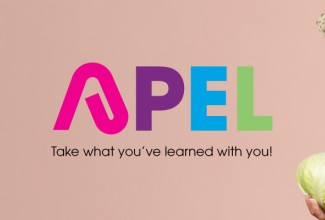VÕTA is a process through which it is possible to officially recognize what has been learned in different ways throughout life. Recognition can occur both at the educational institution in fulfilling the curriculum and through the awarding of a profession.
Assessing prior learning and work experience is a challenge for both the individual and the educational institution. When assessing experience, it is important to clearly distinguish between experience and what has been learned from it - this means that the number of years worked or the position held is not important, but what the person has acquired through this experience, what they know and can do. Therefore, the assessment of previously learned things requires the person's readiness and ability to thoroughly analyze their experiences and what has been learned from them.
From the educational institution, the recognition of prior learning and work experience requires an understanding that learning does not only take place in formal education, but is continuous over time and also includes non-formal and informal learning. Educational institutions must be prepared to recognize knowledge and skills acquired outside formal education as equivalent to learning outcomes acquired in formal education. In addition, educational institutions must agree on VÕTA procedures and rules and be prepared to approach each person individually.
More information about the possibilities of using VÕTA when starting or continuing studies at a specific university or vocational school can be found from the education portal and the website of the educational institution of interest. Information on the possibilities of awarding a profession can be found on the website of the SA Kutsekoda.
VÕTA can be used for:
- Fulfilling admission requirements set by the educational institution;
- Continuing interrupted studies;
- Changing the curriculum;
- Fulfilling the curriculum;
- Awarding a profession.
VÕTA allows to take into account:
- Studies previously completed in educational institutions;
- What has been learned in further education or independently;
- Knowledge and skills acquired through work experience. The most important thing here is the substantive suitability of previously learned things with the curriculum or professional standard.
VÕTA is beneficial to the learner because it:
- Allows to focus on acquiring new knowledge and skills, avoiding repetition of what has already been learned;
- Allows to reduce the time spent on completing the curriculum;
- Promotes the emergence of connections between theory and practice;
- Increases motivation for lifelong learning;
- Makes visible acquired skills and knowledge, thereby increasing self-esteem and providing personal satisfaction.
VÕTA is beneficial to the educational institution because it:
- Supports the increase in the number of adult learners;
- Learners with different backgrounds and experiences enrich fellow learners, trainers, and the entire learning process;
- Promotes cooperation between different educational institutions.
Last updated: 08.05.2024
